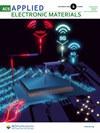Immunotherapy in Stage III-IV Colon Cancer: A Propensity Score-Matched Analysis of the National Cancer Database.
IF 4.3
3区 材料科学
Q1 ENGINEERING, ELECTRICAL & ELECTRONIC
引用次数: 0
Abstract
SUMMARY Immunotherapy for the systemic treatment of cancer offers new treatment possibilities for advanced malignancies. Despite promising initial results, evidence on efficacy of immunotherapy for colon cancer is lacking. Thus, we aimed to assess short-term and long-term outcomes of immunotherapy in patients with advanced colon cancer. A US National Cancer Database was searched for patients with stage III-IV colonic adenocarcinoma between 2010 and 2019. Propensity score matching was used to classify the cohort into 2 groups: patients who received immunotherapy and controls. Main outcome measures were primary outcome was overall survival (OS). A total of 23,778 patients with stage III-IV colonic adenocarcinoma were treated with immunotherapy during the study period compared to 114,753 controls. Immunotherapy treated patients were younger (median age 61 vs. 67 y; P<0.001), more often male (57.3% vs. 50.7%, P<0.001), had more private insurance (44.1% vs. 33.7%; P<0.001), had more left-sided tumors (49.5% vs. 39.1%; P<0.001) and liver metastasis (80.2% vs. 61.7%; P<0.001) than controls. Immunotherapy patients received more standard chemotherapy (49.8% vs. 41.6%; P<0.001). After propensity-score matching, mean OS was significantly shorter in the immunotherapy group compared with controls (34.7 vs. 36.2 mo; P=0.008). Cox regression analysis demonstrated that immunotherapy was associated with increased risk for mortality (HR: 1.1; 95% CI: 1.02-1.18; P=0.005). Patients who received immunotherapy had lower 90-day mortality rates compared with controls (2.3% vs. 3.6%; P=0.004), but the groups had equivalent 30-day mortality rates (0.7% vs. 0.8%; P=0.76). Immunotherapy showed no improvement in OS in patients with stage III-IV colon cancer.III-IV期结肠癌的免疫疗法:全国癌症数据库倾向得分匹配分析》。
摘要用于癌症全身治疗的免疫疗法为晚期恶性肿瘤的治疗提供了新的可能性。尽管取得了令人鼓舞的初步结果,但有关结肠癌免疫疗法疗效的证据仍然缺乏。因此,我们旨在评估免疫疗法对晚期结肠癌患者的短期和长期疗效。我们在美国国家癌症数据库中搜索了2010年至2019年期间III-IV期结肠腺癌患者。采用倾向评分匹配法将队列分为两组:接受免疫疗法的患者和对照组。主要结局指标为总生存期(OS)。在研究期间,共有23778名III-IV期结肠腺癌患者接受了免疫疗法治疗,而对照组有114753人。与对照组相比,接受免疫疗法治疗的患者更年轻(中位年龄 61 岁对 67 岁;P<0.001)、更多为男性(57.3% 对 50.7%,P<0.001)、有更多私人保险(44.1% 对 33.7%;P<0.001)、有更多左侧肿瘤(49.5% 对 39.1%;P<0.001)和肝转移(80.2% 对 61.7%;P<0.001)。免疫治疗患者接受标准化疗的比例更高(49.8% 对 41.6%;P<0.001)。经过倾向分数匹配后,免疫治疗组的平均OS明显短于对照组(34.7个月 vs. 36.2个月;P=0.008)。Cox回归分析表明,免疫疗法与死亡率风险增加有关(HR:1.1;95% CI:1.02-1.18;P=0.005)。与对照组相比,接受免疫疗法的患者的90天死亡率较低(2.3% vs. 3.6%;P=0.004),但两组患者的30天死亡率相当(0.7% vs. 0.8%;P=0.76)。免疫疗法没有改善III-IV期结肠癌患者的OS。
本文章由计算机程序翻译,如有差异,请以英文原文为准。
求助全文
约1分钟内获得全文
求助全文

 求助内容:
求助内容: 应助结果提醒方式:
应助结果提醒方式:


